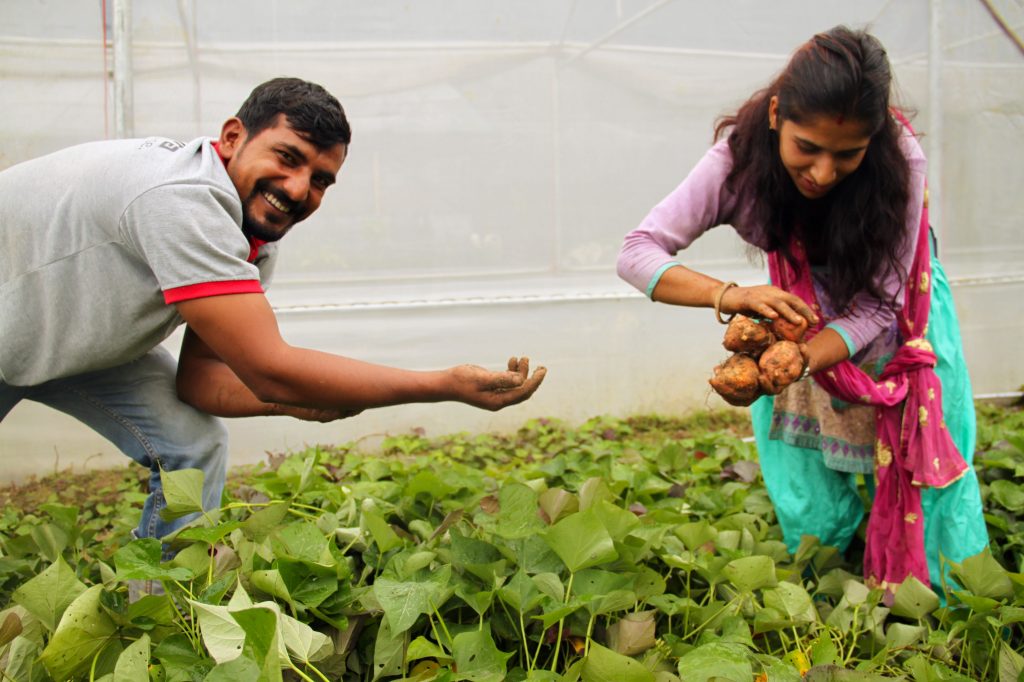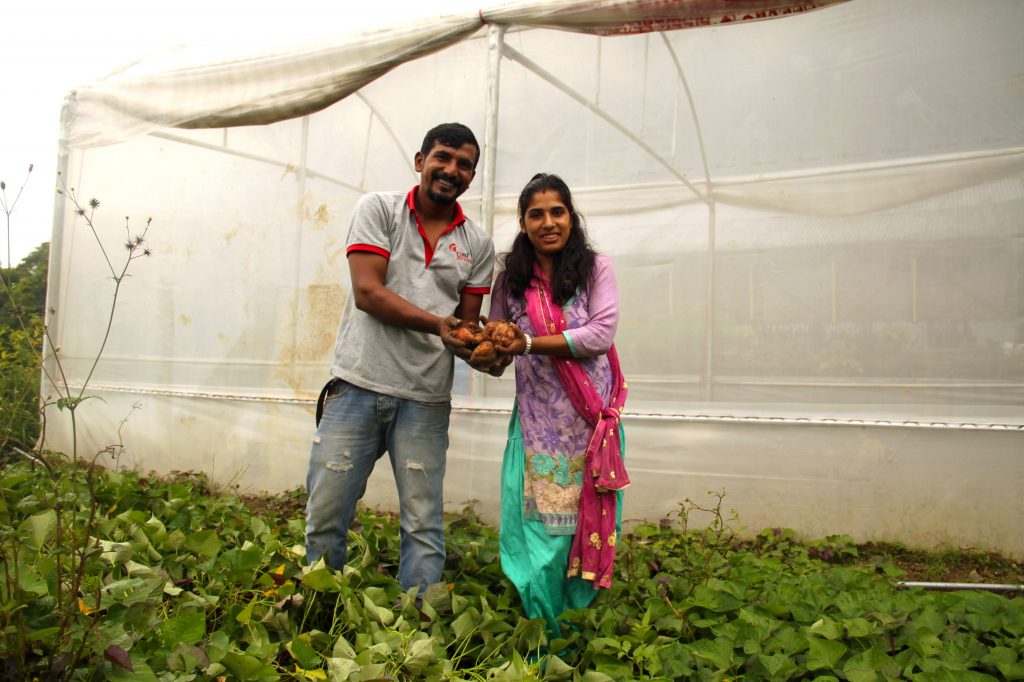Growing Resilience with Sweet Potatoes in Nepal
Growing Resilience with Sweet Potatoes in Nepal
After an earthquake, a farmer in Nepal used her agricultural skills and knowledge to rebuild her family and community’s livelihood.
At just 21 years of age, Shradha Adhikari is already a Village Model Farmer, a title given to her by her community; others look to her as an example of a successful farmer who also uses the crops and livestock she grows to cook nutritious meals for her two young children. However, just four years ago, when the 2015 earthquake hit in Nepal, Shradha and her family lost everything. The earthquake destroyed her family’s home, wiped out her entire vegetable crop and killed 2,000 chickens, which served as both their household food supply and main source of income. Despite losing everything, Shradha and her husband, Ramesh, did not give up; they had a plan.

When the earthquake hit Nepal, Shradha had the skills, knowledge and savings to help her family and community overcome the earthquake’s destruction. Shradha first learned how to grow and cook nutritious crops, like orange-fleshed sweet potatoes, through a USAID-supported training in her community. As part of a community group for women with young children, Shradha also learned the importance of practicing proper water, sanitation and hygiene behaviors, breastfeeding and regularly taking her children to the health clinic. Through the women’s group trainings, she discovered the importance of saving money and learned basic business skills. Her husband, Ramesh, also benefited from these trainings. Together they used what they learned to expand their crop yield and poultry rearing to make it a profitable business. From this business, Shradha and Ramesh earned enough income to set up savings at a local bank.
The savings from their business enabled them to continue feeding their family with foods from local markets despite losing their own food sources. They were also able to take out a loan to rebuild their house. With additional loans and support from the Government of Nepal for supplies, Shradha and Ramesh re-started their business and even surpassed their former profit level. And the nutritious orange-fleshed sweet potato, which Shradha first learned about through her USAID-supported women’s group, is now their most prized crop.
“We feed our children orange-fleshed sweet potatoes because it has vitamins and nutrients like those that are in eggs,” explains Shradha. “I prepare it in different ways; sometimes I steam it, sometimes I mash it.”

Shradha and Ramesh also share the sweet potato vines with others in their community to spread the benefit of these nutritious foods and increase food security, since much of their community is still struggling to rebuild all that was lost during the earthquake. As Ramesh describes, “I think the most fulfilling thing is giving orange sweet potato vines to households with young children and neighbors and explaining to them the importance of good health and why you should invest in nutrition.” Together, Shradha and Ramesh are sharing both their crop yield and their knowledge with others to improve their entire community’s nutrition, health and livelihoods.
USAID’s maternal and child nutrition work in Nepal aims to improve household- and community- level education on and uptake of proper nutrition-related behaviors, such as feeding children a diverse diet of nutrient-rich foods like orange-fleshed sweet potatoes and eggs. Following the 2015 earthquake, this knowledge and education has helped empower individuals, like Shradha, to become leaders and keep their families and communities healthy and strong. In 2018, USAID trained more than 12,000 mothers with young children how to grow and cook nutritious crops and livestock at home, and provided vegetable seed packs to nearly 51,000 households to start their own home gardens. And through continued education, counseling and behavior change efforts, USAID ensures that families and communities maintain these improved health behaviors to enhance food security, build economic capacity and assist Nepal on its journey to self-reliance.
Feed the Future is a key part of USAID’s maternal and child nutrition work around the globe. The story is original from https://www.usaid.gov/actingonthecall/stories/nepal-growing-resilience.
